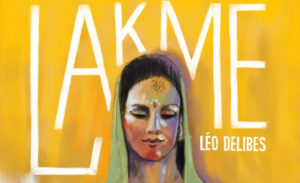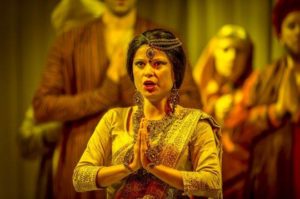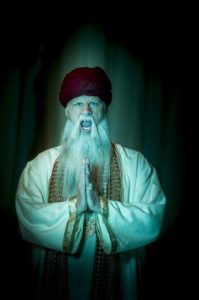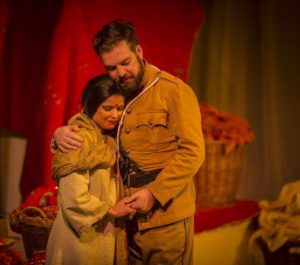
 (4 / 5)
(4 / 5)
Absolutely beautiful – the colours of India, the sentiments of its time, the tragedy of love over birth – exquisite.
It makes me cry. I have loved the music from this rarely performed opera for years and years. It is absolutely beautiful. And the characters are all visually believable – both leads are young and lovely looking, their voices ardent as their passion. No one is miscast, no one is out of place.
It is as gentle and as curiously English as a Wildean play but with the underlying expectation of tragedy teasing us along the way. It is Madam Butterfly meets Passage to India. I wonder whether I may feel less or more affected were it sung in the original French and conclude a handsome, manly colonialist colliding with a hidden jewel of a local lass will sound the same in any language where it is sung with conviction.
The clash of backgrounds, religions, family and commitments is very predictable and the terrible messy tragedy of it all plays out predictably too. Delibes opera is based on Pavie’s story. But this is a predictable tale prettily told, beautifully visualised and fabulously well sung.
The Flower Duet between Lakme and Mallika is exquisite, Lakme’s Bell Song heart-achingly lovely with the sopranos comfortably balanced by the tenor of Gerald and the bass-baritone of Nilakantha.
The set feels a little clumsy initially but its simplicity allows us to concentrate on the opera and enjoy the music, the period costumes and the sublime singing. How lovely it is to revel in Lakme performed as it might have been at the turn of the last century.
But yet again, I leave a performance wishing I could take it home with me somehow – I want to listen to it all again and again and I can’t – I want to take Lakme home with me, fill my house with her voice, send it out into the darkness of the night so others can hear her, feel her hope and her sorrow, scent the flowers in her garden, scream at her not to take the poisonous datura…
I am left bereft.
Beautiful
Helen Joy for Get the Chance, 3rd Act Critics.
7 March, 7.30pm
Prices
£15 -22
Concessions: £2 off
Under 25s: Half price
More information
By Léo Delibes
Director Brendan Wheatley
Pre-show talk: 6.15pm
Running time: 135 minutes (20 minutes interval)
http://www.swanseacityopera.com/productions/lakme/
Tour dates: http://www.swanseacityopera.com/productions/lakme/
- Lakme – Madalina Barbu
- Lakme – Hannah Sawle
- Gerald – Luke Sinclair
- Gerald – Daniel Joy
- Nilakantha – Håkan Vramsmo
- Mallika – Katarzyna Balejko
- Frederick – Mark Saberton
- Ellen – Georgina Stalbow
- Rose – Jess Robinson
- Miss Bentson – Rhonda Browne
- Hadji – Bo Wang
- Tenor chorus – Richard Hansen
- Tenor chorus – David Fortey
- Bass chorus – Simon Grange
- Musical Director – John Beswick
- Director – Brendan Wheatley


 (3 / 5)
(3 / 5)

